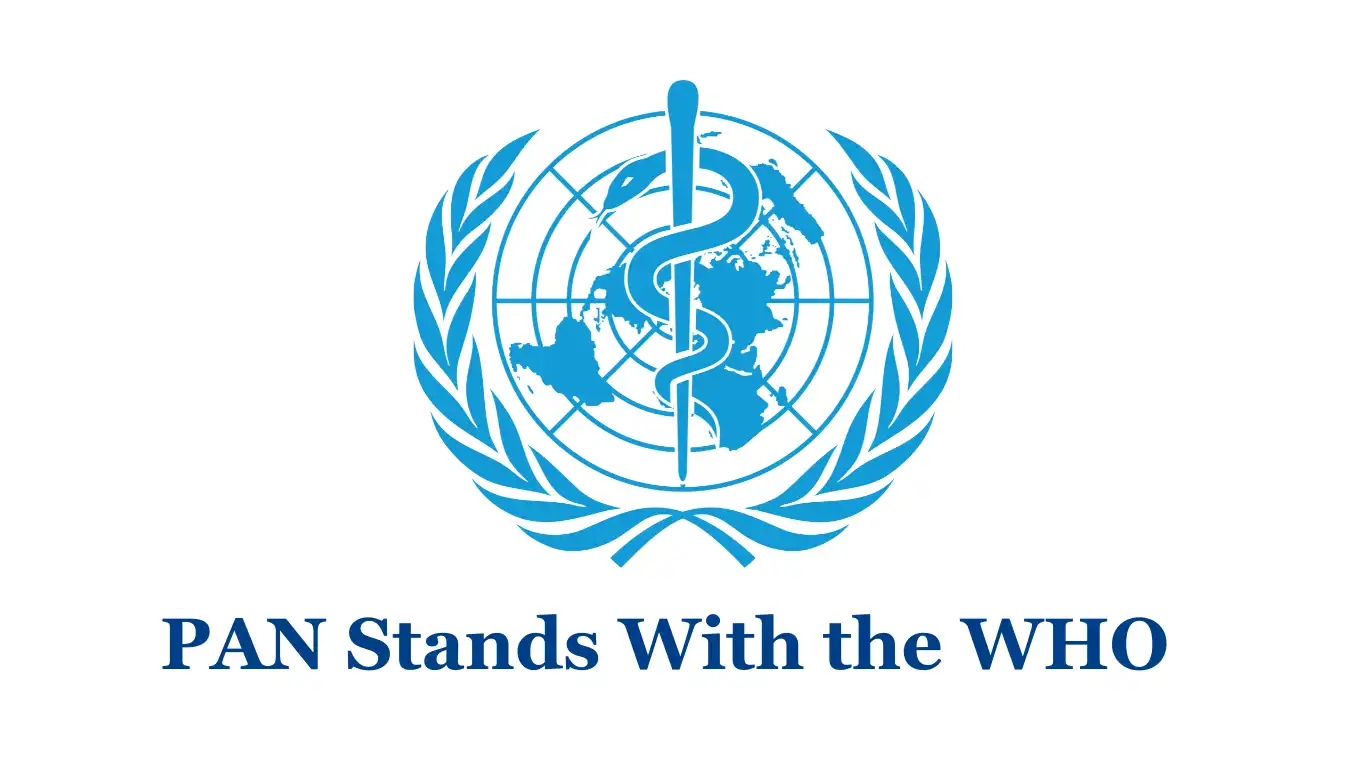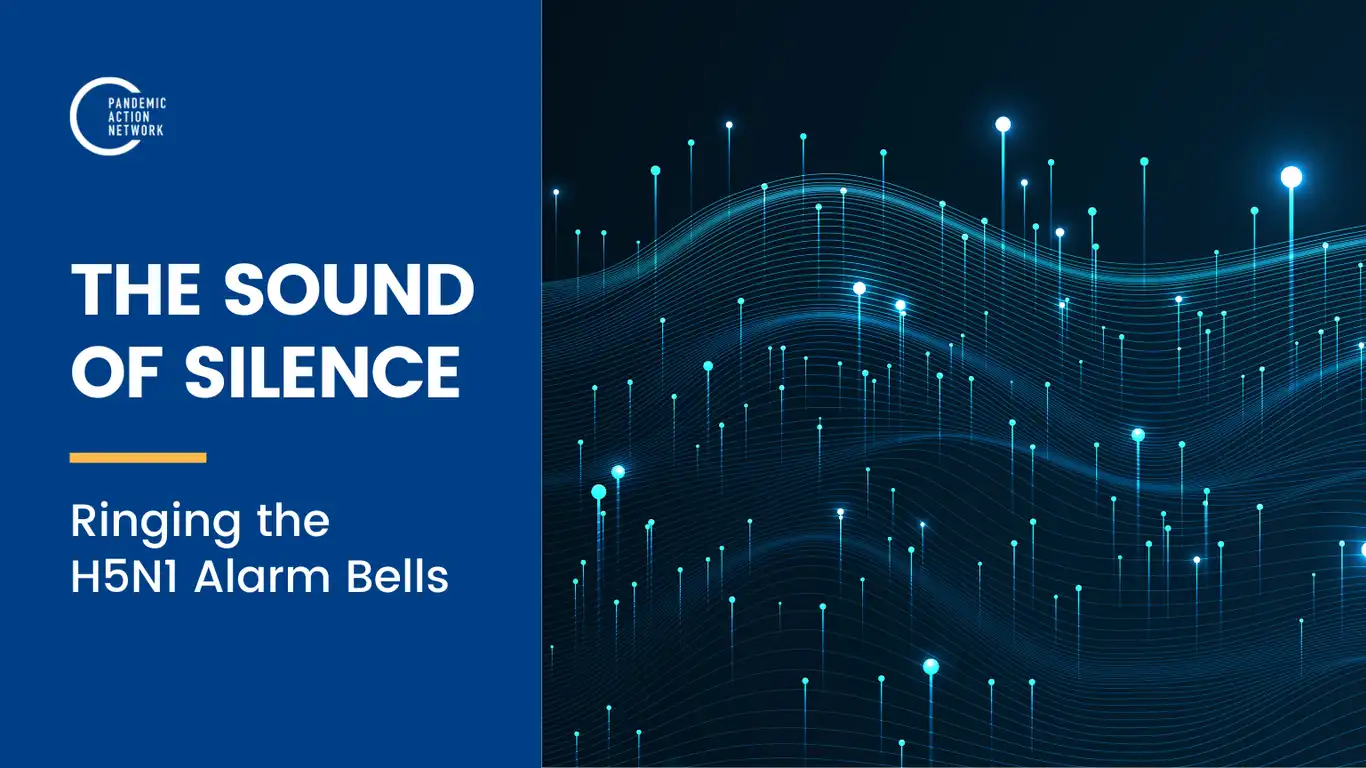Frontline workers say they need more preparation, staff, and PPE and better information and diagnostics
November 18, 2021, Seattle, WA—Today, the Pandemic Action Network released new research findings revealing challenges that continue to burden doctors and nurses in the U.S. well over a year into the COVID-19 pandemic and pointing to what is required to be better prepared for this crisis and future pandemic threats. Notably, access to personal protective equipment (PPE) continues to be a problem — with nearly a third of doctors and nurses saying they did not have sufficient access to PPE, even as recently as summer 2021. Sixty-one percent felt that they did not have sufficient early warning to prepare for the COVID-19 pandemic, and despite best efforts, a third felt it was challenging to follow changing workflows and protocols.
The study, funded by Flu Lab, included a survey conducted by Klick Consulting of 532 doctors and nurses from across the U.S. The survey focused on addressing perceptions of pandemic readiness, knowledge, containment, treatment, and vaccination. Additional qualitative interviews with nearly four dozen health officials, public health workers, doctors, and nurses, revealed a stark reality: while healthcare workers are committed to caring for patients during the COVID-19 pandemic, they have faced increased personal risks and an exceptionally high work volume. And they need more support.
Dr. Carrie Tibbles, an ER physician at Beth Israel Deaconess Medical Center in Boston, participated in this research. “Healthcare systems are really stressed right now, and the workforce is tired. Hospitals need support to build back up — and build our workforce back up — so we can take care of our communities,” said Dr. Tibbles. “The pandemic hit us so hard and in Boston, we felt the first wave shortly after New York. We were able to learn in real time from our friends and colleagues in New York and I’m confident we saved many lives as a result. But if we were armed with the tools to be better prepared for pandemics, I know we could do more.”
These stories further come to life in the new documentary, The First Wave, premiering today in New York at the DOC NYC festival and showing in select theaters tomorrow. The film focuses on the doctors, nurses, and patients from one of New York’s hardest-hit hospital systems during the “first wave” from March to June 2020. By laying bare what healthcare workers braved in hospitals flooded with COVID patients, The First Wave honors both their ongoing commitment to their patients, as well as their own personal sacrifice.
“The study results and the harrowing realities presented in The First Wave make one thing clear: we need to listen to doctors and nurses,” said Gabrielle Fitzgerald, co-founder of Pandemic Action Network. “Hailing health workers as heroes is insufficient — we must ensure they have the information and equipment to do their jobs effectively — before, during, and after a crisis.”
Survey participants expressed gratitude for the opportunity to share their perspectives. “Thank you for giving me the opportunity to share my pandemic experience and opinions… It is a rarity that we are asked about our experience,” said one participant. Another shared, “Thanks for working to improve our processes and systems for the next time this happens (hopefully never).”
“Healthcare workers around the country have been stretched to their breaking points countless times over the course of the pandemic. As a group, we have been labeled heroes, but healthcare workers are only human, and resilience is waning in the face of exhaustion and burnout,” said Dr. Kelly C. Sanders, a pediatrician and Pandemic Action Network member. Dr. Sanders also serves as the technical lead for the Pandemic Response Initiative at UCSF and co-authored a case study on the first year of the pandemic in the U.S. “As a country, if we don’t continue to improve frontline conditions, we risk losing desperately needed healthcare workers. We need to improve local vaccination rates, develop new diagnostic and treatment options, and provide more resources for our stressed public health and hospital systems. This is how the American public and decision-makers can show up for the frontline now.”
To respond to the findings of this study, Pandemic Action Network is calling on U.S. policymakers to:
- Fully resource and accelerate the global COVID-19 response by allocating at least US$17 billion of new funding to assist the world in reaching 70 percent vaccine coverage in every country by the middle of 2022; save lives now through increased access to other lifesaving tools; and prevent future pandemics from occurring. Learn more.
- Provide ongoing funding for surge capacity and measures that prioritize the safety and security of healthcare workers.
- Approve the International Pandemic Preparedness and COVID-19 Response Act, in tandem with the Global Health Security Act to strengthen America’s cross-government coordination on pandemic preparedness and response and bolster our support for global preparedness.
- Approve legislation to strengthen America’s Strategic National Stockpile to ensure adequate PPE and medical supplies for healthcare workers.
- Approve the Dr. Lorna Breen Health Care Provider Protection Act to reduce and prevent suicide, burnout, and mental and behavioral health conditions among healthcare professionals.
- Approve a resolution that would designate the first Monday in March as “COVID-19 Victims and Survivors Memorial Day” to memorialize those lost to the COVID-19 virus and recognize the suffering of COVID-19 survivors.
More details of the research and survey results can be found here.
About Pandemic Action Network
Pandemic Action Network drives collective action to end the COVID-19 crisis and to ensure the world is prepared for the next pandemic. The Network is a robust partnership of over 140 global multi-sector organizations aligned in a belief that every effort made in the fight against COVID-19 should leave a long-term legacy. One where humanity is better prepared to deal with outbreaks and prevent a deadly and costly pandemic from happening again.
About Klick Consulting
Klick Consulting solves the problems others can’t by leveraging applied sciences and novel thinking to decode healthcare’s gnarliest challenges. The consultancy embraces science at the speed of business with a specific focus on commercial solutions with real-world applications. With its diverse team of medical, behavioral science, data science, engineering, business model, machine learning, and strategic design experts, the multidisciplinary, collaborative group resolves business problems through a scientific lens. Klick Consulting works with companies across the healthcare spectrum, including consumer wellness, pharmaceutical, device manufacturers, insurers, health systems, and providers.
CONTACT:
Courtney Morris (U.S. west coast)
[email protected]
Jaryd Leady (U.S. east coast)
[email protected]
###



